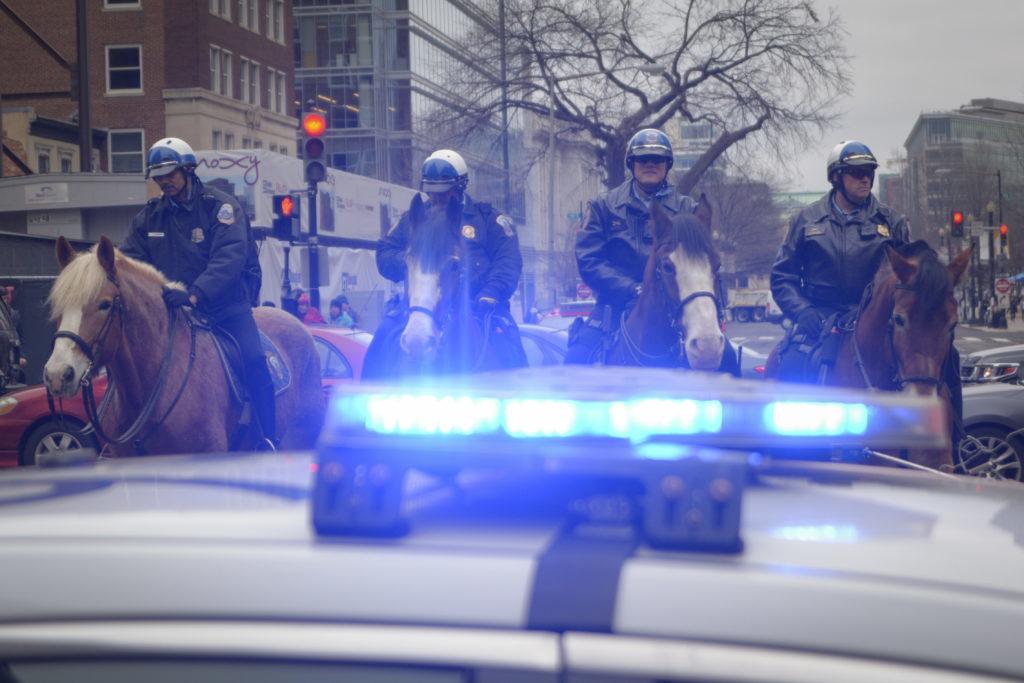After struggling to recruit enough officers to accommodate the city’s growing population, the Metropolitan Police Department is searching for volunteers to join the police force.
MPD posted a release last week seeking volunteer applications for its an annual summer training session for reserve officers, auxiliary officers and citizen volunteers – especially those who like to work with youth. At a time when officials have said MPD needs to boost the number of officers in the department, experts said the program will prepare volunteers to potentially work full time for the department while saving money.
MPD spokeswoman Rachel Reid said in an email that the department is recruiting volunteers interested in the area’s youth because community members tend to want to help young people succeed.
“As residents who live and work in D.C., volunteers are uniquely positioned to assist us with continuing to strengthen our ties with the community,” she said.
Although auxiliary officer volunteers do not have the same duties as regular officers, MPD expects some reserve and auxiliary officers to take on positions at MPD later, Reid said. Reserve officer volunteers complement full-time officer responsibilities, while auxiliary officers work for community relations functions, station work, cell block and event assistance, Reid said.
Civilian volunteers would assist with the department’s daily operations, according to the release.
Reid said MPD plans to recruit at least 15 officers and 20 auxiliary officers. Currently, 90 volunteer reserve officers, 25 citizen volunteers and 40 college interns work in the department. Volunteers gave $3 million in supplemental contributions to MPD last year, Reid said.
D.C. officials, including Council members Vincent Gray of Ward 7 and Jack Evans of Ward 2, have said they are concerned about the decreased number of MPD officers. Gray and Evans proposed legislation to add funding to hire more police officers, but it failed to pass at the last D.C. Council meeting.
Experts said exposing volunteers to MPD operations will provide the department with potential new officers who might later pursue careers in the division.
Stephen Bigelow, the vice chairman of the DC Police Union, said adding volunteer officers to the force helps future officers understand the jobs’ difficulties before committing to a full-time officer position.
“You get people who are doing it because they want to do it, not necessarily because they benefit,” Bigelow said. “These are people that want to serve their community. They are honored to do it and they’re proud of it, and I think that’s what motivates them.”
MPD has been expanding volunteer duties since 2011 in addition to formally adding the Office of Volunteer Coordination in August 2016, Marvin Haiman, the director of the office, said in an email.
Adding volunteer officers to the force puts more officers on the streets, which makes police more visible and the public more safe, Jennifer Zoner-Peach, an officer and part of the recruit training team with the Baltimore County Maryland Police Department, said.
Zoner-Peach said community members appreciate Baltimore County auxiliary police department’s volunteers because they keep an eye out for suspicious events while getting to know the neighborhoods they patrol.
“It always makes people feel more comfortable and safer in their community when they see police officers driving around and when they see them out of their car and talking to people in the community,” she said.
MPD has prioritized community policing in the past year. Department leaders recently reorganized its sectors partially to focus on officer-community relations, and Interim Police Chief Peter Newsham has become more involved with District residents.
Other police departments, like the Arlington County Auxiliary Police Unit, use volunteer officers to deal with tasks like parking control and security at events, Auxiliary Lt. Heather Hurlock said.
“There are mundane chores and events that the auxiliaries can take care of for us,” Hurlock said. “They could provide services that would just not be permitted if you were paying an officer to do it.”





